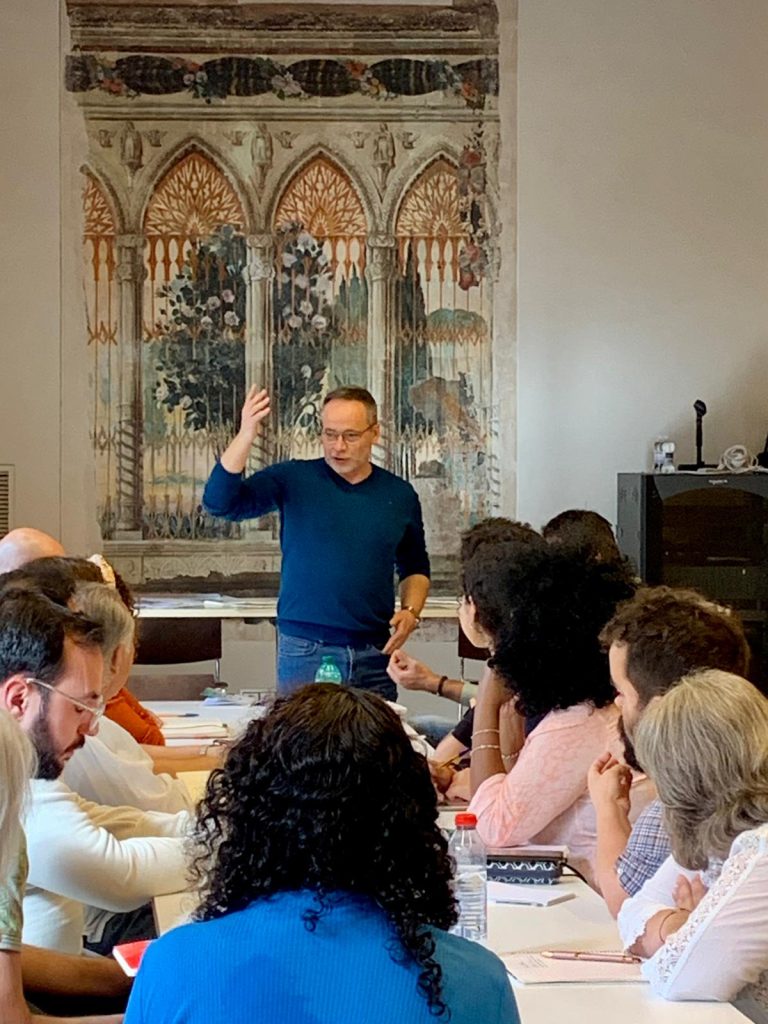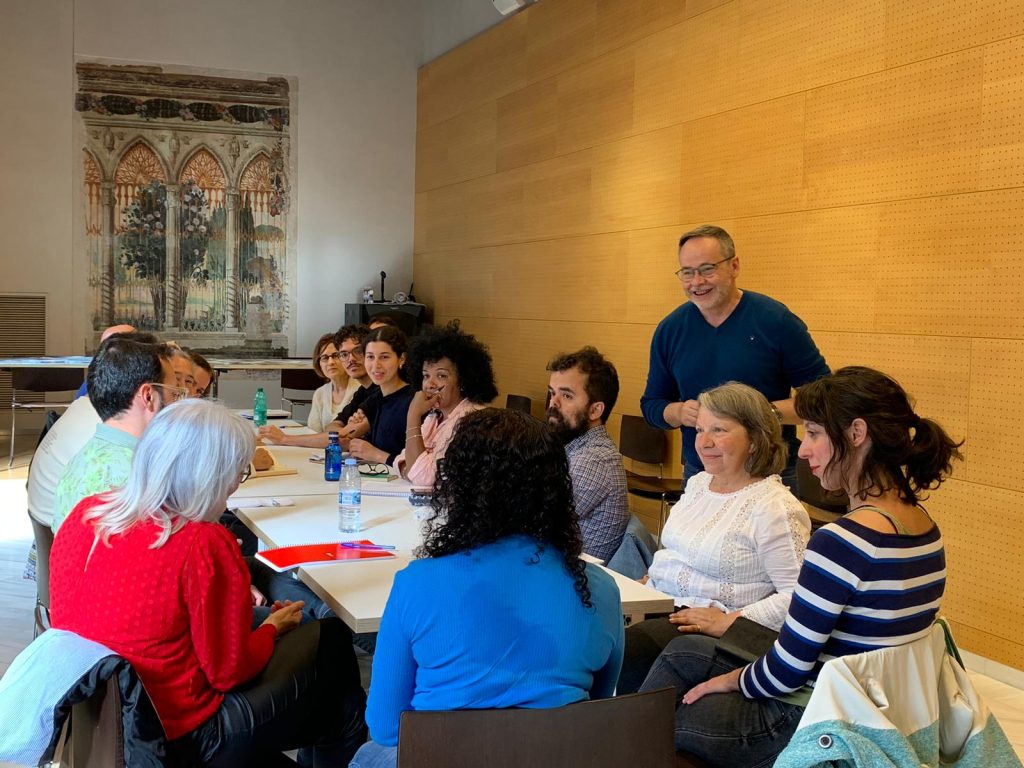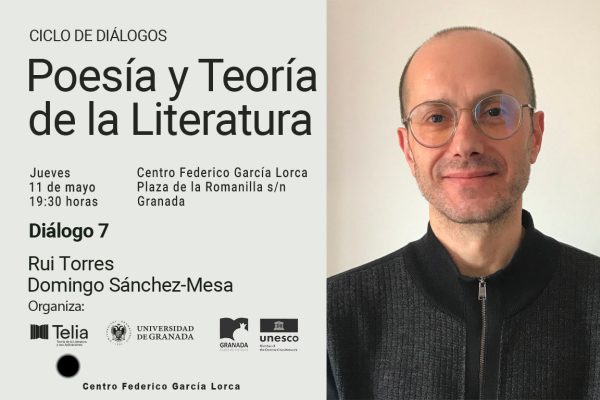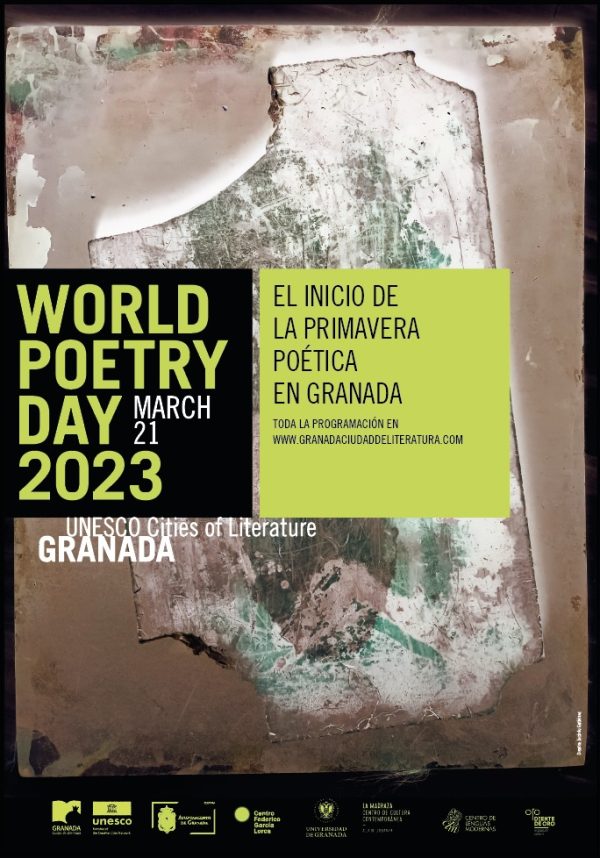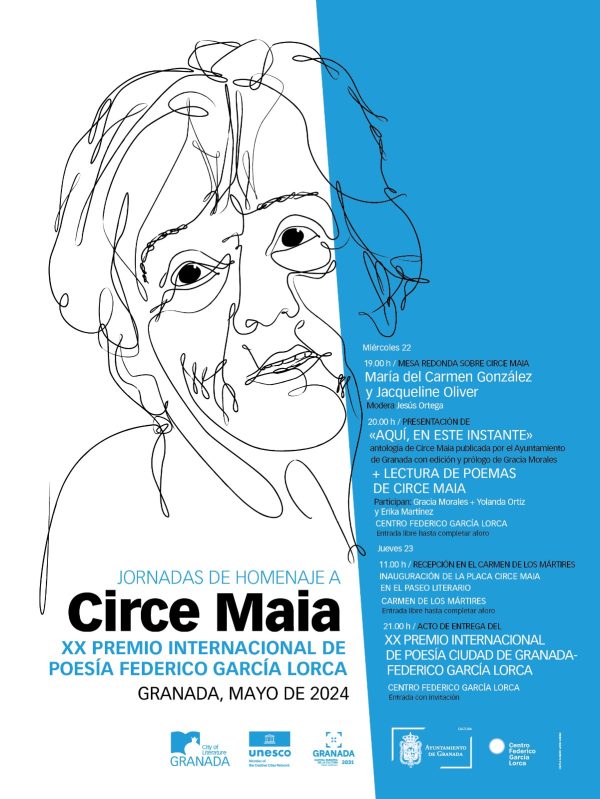Workshop «Believe it or not: Writing Poetry from Spirituality in the 21st century», by Antonio Praena
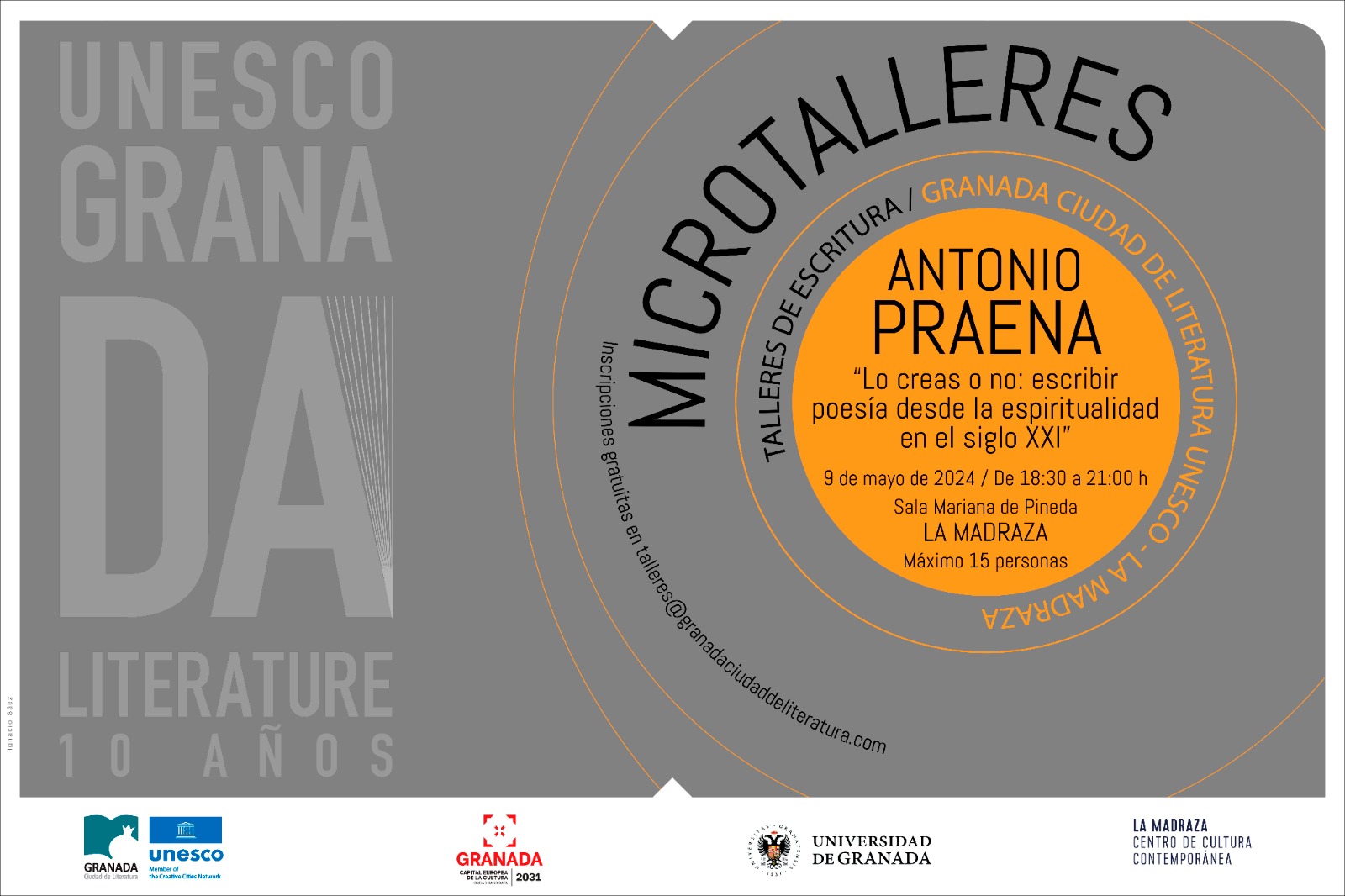
On Thursday 9 May, from 18:30 h, the free micro-workshop “Lo creas o no: escribir poesía desde la espiritualidad en el siglo XXI” will take place in the Mariana de Pineda Hall of the Palacio de la Madraza. It will be given by Antonio Praena. Maximum 15 places.
Those interested can register at: talleres@granadaciudaddeliteratura.com.
This workshop is part of the collaboration between Granada City of Literature UNESCO and the Vice-Rectorate of University Extension of the UGR, through La Madraza-Centro de Cultura Contemporánea of the University of Granada and the Cátedra Federico García Lorca.
The Workshop
The desire for transcendence and spirituality have experienced an explosion in the 21st century that speaks to us of the search for meaning and opens us up to levels of experience beyond the material. Contemporary poetry is no stranger to this. Following a practical and creative approach, in this workshop, we will give ourselves over to poetic creation through methodologies such as collage or interaction with images from the history of religious art, advertising or photojournalism. Emotions and group dialogue will open the doors of language to lead us to a writing where the depth of consciousness and the different aesthetic and ethical expressions of our time give birth to unexpected poems.
Antonio Praena
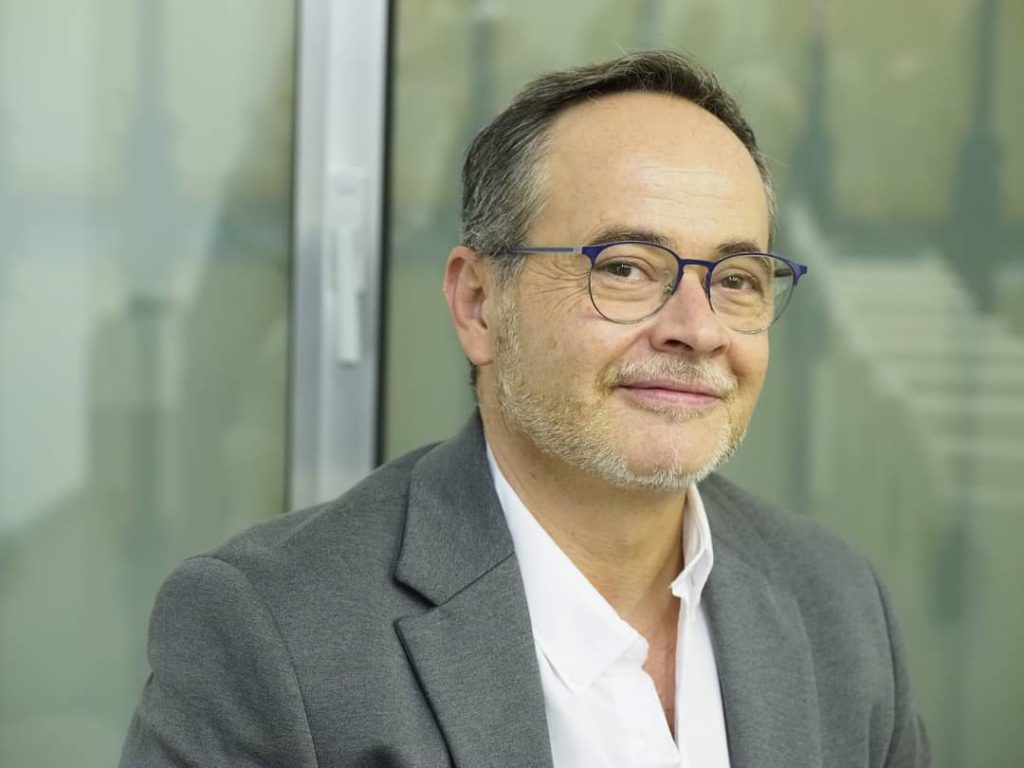
Antonio Praena (Purullena, Granada, 1973), a poet and priest, has published the books of poems Humo verde ( runner-up for the Premio Iberoamericano Víctor Jara, 2003), Poemas para mi hermana ( runner-up Adonáis, 2006), Actos de amor ( Premio José Hierro, 2011), Yo he he querido ser grúa muchas veces (Premio Tiflos, 2013). For his book Historia de un alma ( Visor, 2017) he received the Jaime Gil de Biedma Prize, the Premio de la Crítica Andaluza and the Premio Valenciano de la Crítica. In 2020 his work Cuerpos de Cristo won the Emilio Alarcos Prize. He holds a doctorate in theology and has been a lecturer at the Faculty of Theology in Valencia since 2001, as well as at Domuni Université and the Higher Institute of Religious Sciences in Valencia.
